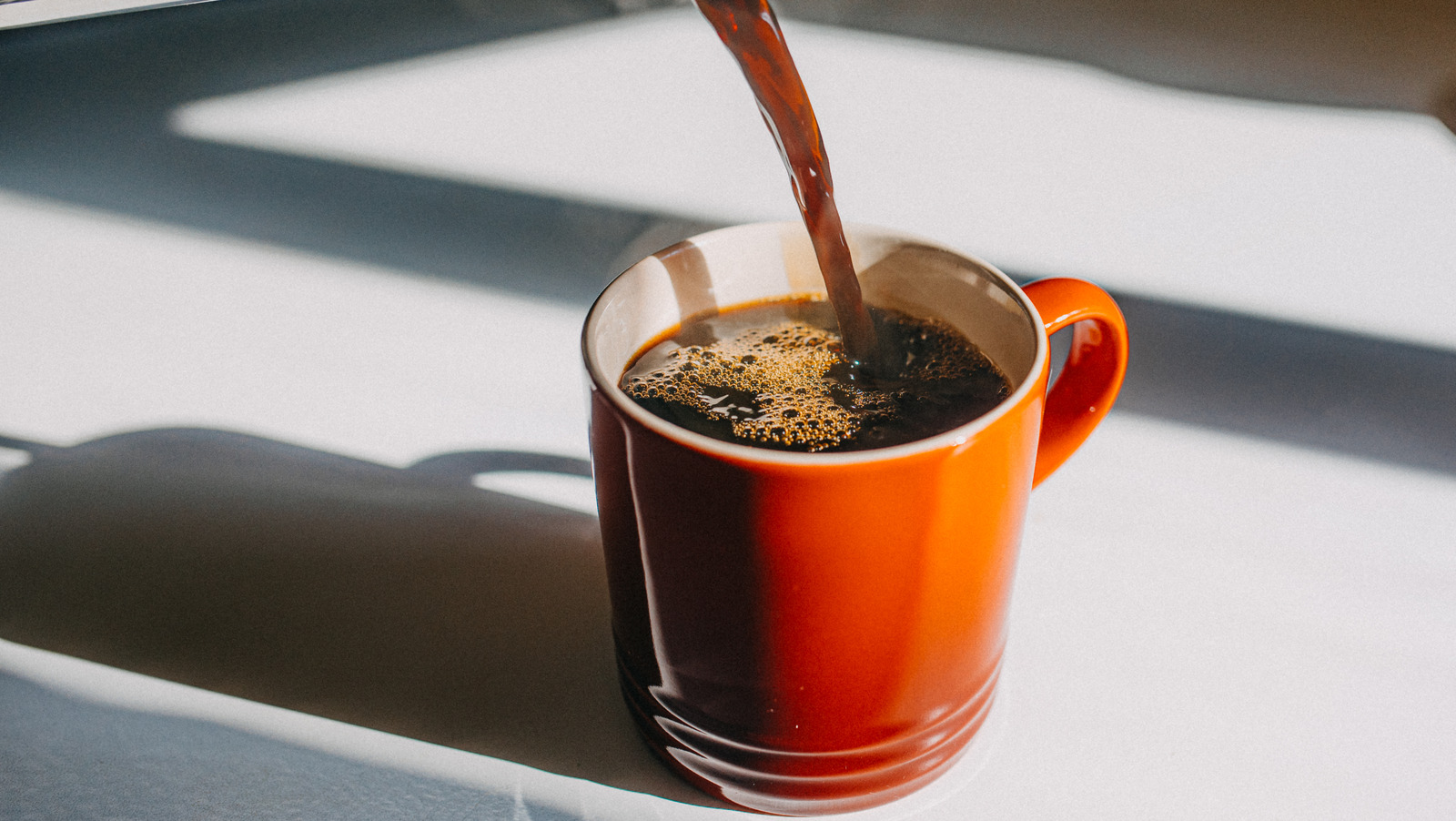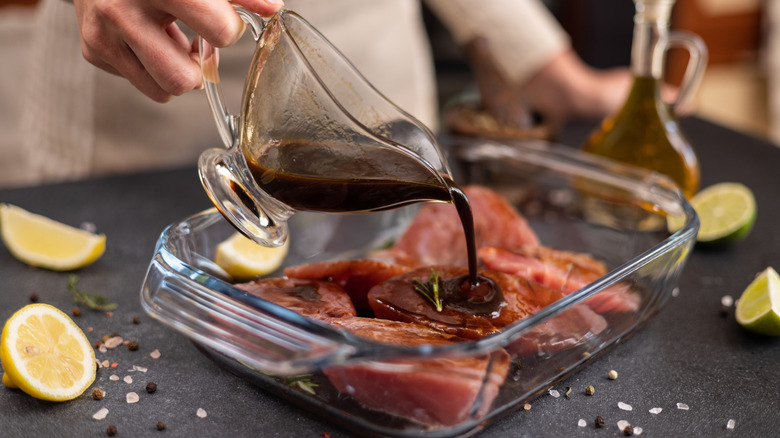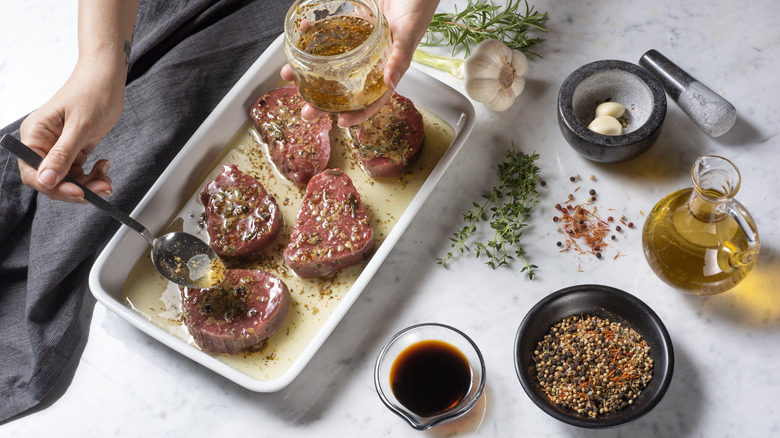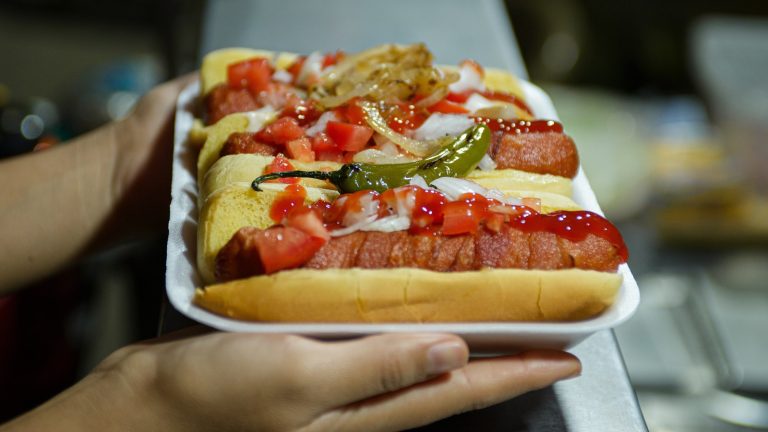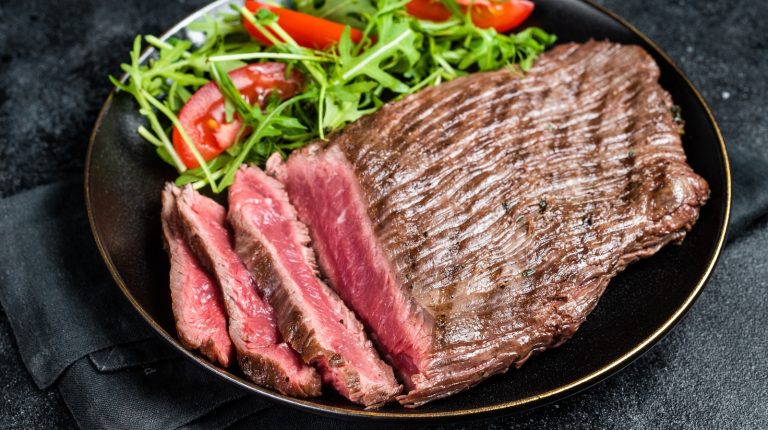The culinary popularity of coffee has long stretched far beyond the morning mugs and thermoses carrying sugary lattes and iced black drip. You can walk into nearly any pastry shop to find rows of mocha truffles, espresso brownies, and cappuccino cheesecake or wander into upscale restaurants to order a classic tiramisu. You can even bake at home with instant coffee. But it’s time that coffee consumers fully embrace the beverage’s savory potential — because the rich brew takes meat to the next level of flavor when you use it as a marinade.
A marinade is a mixture of spices, seasonings, sometimes oil, and always acid. The acid ingredient of a marinade is essential because it breaks down the meat’s proteins to tenderize it and allow more flavor to penetrate the surface. Because coffee is acidic, with a pH of around 4.5, it can certainly function as this protein-denaturing acid in a marinade — but you’ll often find that coffee marinade recipes also include vinegar, which has a far lower pH of 2 and will be more effective. Although the acidity is there, coffee’s true function in a marinade is its bold, distinctive flavor.
Brew a liquid marinade or turn grounds into dry rub
A coffee marinade starts, unsurprisingly, with a very strong cup of coffee. You’ll want it to be much stronger and more concentrated than you would usually drink it so that the flavors can infuse effectively. Brew it, then let it cool before you mix it with the marinade’s other ingredients and saturate the meat. The marinating time will depend a lot on the meat you’re cooking, and it isn’t always better to marinate food for longer — pork, steaks, and other cuts of beef can marinate for as much as 12 hours, but seafood can typically only stand about 30 minutes and chicken about two hours before the proteins are broken down too much and the texture is affected. You also have to be particularly careful with coffee marinades, because too long of a marinating time will allow the coffee to become overly bitter.
If you have less time on your hands, coffee grounds also work well as a dry rub. You can use freshly ground beans or the grounds from already brewed coffee mixed with spices, seasonings, and herbs. Leave the rub on the meat for 30 minutes (or longer, if you prefer), and you’ll get that beautiful, rich coffee flavor plus an appetizing browned crust.
Infuse your meat with robust, well-rounded flavor
Beyond the typical rich and bitter flavors, different coffee beans vary widely in their profiles, so it’s important to consider those notes as you create your marinade. Even though you’re brewing it very strong, you want a cup of joe with a pronounced taste that will stand its ground (grounds?) against the marinade’s other ingredients and the meat itself. Dark roast beans tend to have a more robust flavor compared with a delicate light roast; they are also generally more bitter and full-bodied.
It’s also worth exploring different coffee-producing regions, because topographical attributes like soil and altitude level affects the flavor of your coffee beans — and you can ensure that their unique notes complement the other ingredients and the meat itself. Indonesian Sumatra often has a bold, smoky, even chocolatey taste that works well with beef, while the lighter, more fruit-forward body of Ethiopian coffee pairs well with chicken and fish.
Once you have the coffee’s flavor profile solidified, you can play around with pairing the marinade’s other ingredients. If you choose a very bitter roast, a little bit of sugar or molasses or even chocolate might balance it out. If you’re adding a stronger acid, the sweetness of balsamic or the brightness of red wine vinegar could bring out the coffee’s best. The richness of the coffee might also benefit from the tanginess of Worcestershire sauce or Dijon mustard. Take the coffee’s taste and let the other ingredients introduce complexity and balance.

